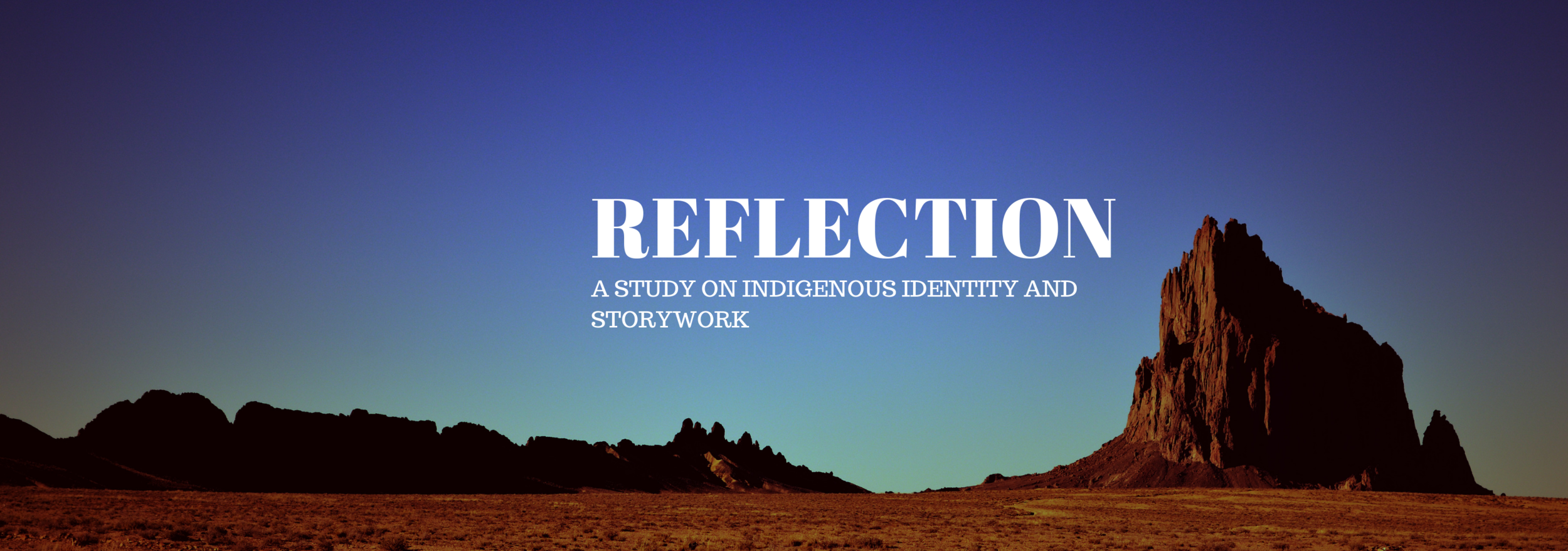The REFLECTION project
WHAT IS THE REFLECTION PROJECT?
REFLECTION, is an art-based participatory action pilot project that combines the visual and digital arts with community-based art practices to study the development of Indigenous identity among Native American youth. Through the method of journal art making and story circles, participants will examine their identity development through journal prompts, conversations, and mentorship. Story Circles are an Indigenous method that closely resembles that of a focus group. Story circles are considered safe spaces and methods of healing for Indigenous people, in which participants are encouraged to share all aspects of themselves, through heart, mind, body, and spirit (Lavallee, 2009).
WHAT WILL PARTICIPANTS DO?
REFLECTION is an eight-week project, with one meeting each week and weekly journal writing. The first week of the study will be an introduction to the REFLECTION project. During the first meeting, I will provide background information about the project and information about myself, as well as detailed information on what the students will be involved in. Students will then be given two permission forms to participate in the study, one for themselves and one for their parents to allow them to participate in the study. The second week will focus on “getting to know each other” through icebreakers and an introduction to story circles, this week is crucial in building trust, respect, and reciprocity. For the remaining six weeks, students will meet approximately once a week for one hour via zoom (this has been altered due to the pandemic), in which they will participate in story circles that will focus on personal expressions, issues of identity, community history, storytelling activities, discussion of prompts and personal artwork, Indigenous history and culture. They will also be given a series of journal prompts that will help guide them through their journal art making sessions they will do on their own time. At the end of the project, participants will receive a gift card and tote bag they will design with their peers.
The REFLECTION project also focuses on community building and mentorship, in which the students will connect with local and national Indigenous artists and artists of color in a workshop setting or artist talk with the goal of skill-sharing and mentorship. Artists who will facilitate these workshops are at varying levels in their careers, from emerging to established.
What happens after the study is over?
REFLECTION is a dissertation study, therefore, following the eight-week project, all journals and information that was gathered will be collected and analyzed, which will include copies of the student’s journals and recordings of dialogue shared in story circles. Participants will be given their original journals once copies are obtained. A part of the permission forms will include an agreement that information shared throughout the project by the participant will will be shared under a pseudonym name to ensure privacy. If publication becomes a result of the researcher’s dissertation, the researcher will ask the participants and their parents/legal guardians for permission of their content. If permission is granted, participants and families will be given a copy of that publication. Once the dissertation is complete, all recordings and documents will be disposed in a secure manner.
If REFLECTION is successful, the goal of the study is to continue the project with all students or youth who identify as BIPoC (Black, Indigenous, People of Color). The reasoning for REFLECTION only focusing on Indigenous youth right now is to address a gap in Indigenous research that focuses on Indigenous youth, identity, and how art making has become a successful medium for understanding self and for cultural survival and resistance to contemporary systems of oppression.
If you wish to learn more about the REFLECTION project or wish to participate, please feel free to contact me at winoka.yepa@gmail.com.
Inspiration
From the book: “A World of Artist Journal Pages” Curated by Dawn Devries Sokol






